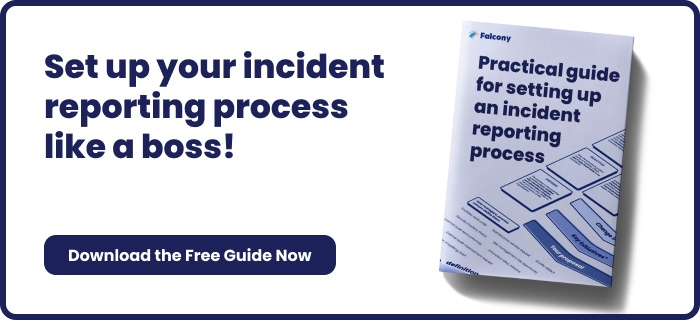Eight Well-known Unsafe Acts in Agriculture
Regardless of context and business, unsafe acts can lead to accidents, injuries, and even fatalities. This is true as well in agriculture industry.
Identifying and addressing these well-known unsafe behaviors is crucial for promoting a culture of safety and reducing risks in the workplace. Here are eight prevalent unsafe acts encountered in the agricultural and farming industry:
1. Ignoring Safety Procedures
Failing to follow established safety procedures and protocols puts workers at risk of accidents and injuries. Unsafe behaviors such as bypassing safety guards, ignoring warning signs, or taking shortcuts can lead to severe consequences.
2. Lack of Personal Protective Equipment (PPE)
Not wearing appropriate PPE exposes workers to hazards such as chemical exposure, machinery entanglement, or falls from heights. Unsafe acts like working without safety glasses, gloves, helmets, or respiratory protection increase the risk of injury or illness.
3. Horseplay and Distractions
Engaging in horseplay, pranks, or distractions while working diverts attention from safety-critical tasks and increases the likelihood of accidents. Unsafe behaviors such as goofing off, playing with equipment, or using mobile phones on the job compromise focus and situational awareness.
4. Improper Equipment Use
Misusing or operating equipment improperly can lead to equipment malfunctions, breakdowns, or accidents. Unsafe acts such as overloading machinery, bypassing safety features, or using tools for unintended purposes increase the risk of injury to oneself and others.
5. Speeding and Reckless Driving
Operating vehicles and machinery at excessive speeds or in a reckless manner poses significant risks to workers and bystanders. Unsafe behaviors such as speeding, tailgating, or making sharp turns increase the likelihood of collisions, rollovers, and pedestrian accidents.
6. Fatigue and Impaired Judgment
Working while fatigued or under the influence of drugs or alcohol impairs judgment, coordination, and reaction times, increasing the risk of accidents. Unsafe acts such as working extended hours without breaks, driving while drowsy, or consuming alcohol on the job endanger both the individual and others.
7. Overexertion and Poor Ergonomics
Overexertion and poor ergonomic practices contribute to musculoskeletal injuries such as strains, sprains, and repetitive motion disorders. Unsafe acts like lifting heavy loads incorrectly, working in awkward postures, or neglecting ergonomic principles increase the risk of debilitating injuries.
8. Failure to Report Hazards
Neglecting to report hazards, near misses, or safety concerns prevents timely intervention and corrective action. Unsafe behaviors such as overlooking potential hazards, dismissing safety risks, or avoiding reporting incidents contribute to a culture of complacency and increase the likelihood of accidents.
Final thoughts
By addressing these common unsafe acts through training, supervision, and enforcement of safety policies, agricultural and farming enterprises can foster a safer work environment, prevent accidents, and protect the well-being of workers and stakeholders.
If you're looking for a platform to collect more data to monitor your organisation's incident reporting practices, Falcony | Observe have you covered. You can find more information on our website or test out our 30-day free trial:
We are building the world's first operational involvement platform. Our mission is to make the process of finding, sharing, fixing and learning from issues and observations as easy as thinking about them and as rewarding as being remembered for them.
By doing this, we are making work more meaningful for all parties involved.
More information at falcony.io.

Related posts
9 Most Typical Unsafe Acts in Automotive and Vehicle Manufacturing
In automotive and vehicle manufacturing, safety is paramount to protect workers from harm...
8 Typical Unsafe Acts in the Chemical and Petrochemical Industry
The chemical and petrochemical industry operates within a high-risk environment where safety is...
How To Use Heinrich’s Triangle In Safety Management?
The Heinrich Accident Triangle is also known as the accident triangle or the Bird's triangle. It is...





